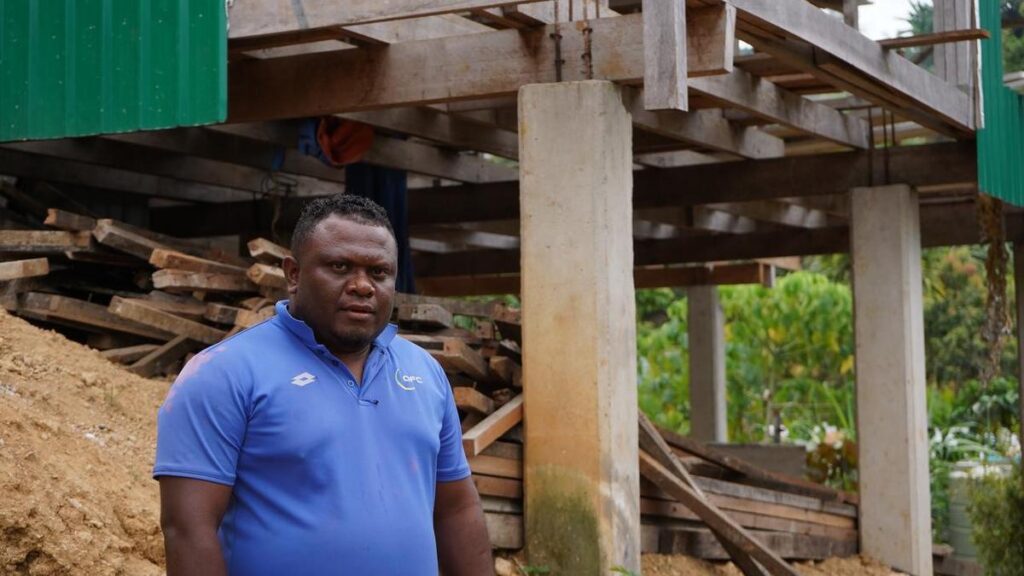
URGENT UPDATE: A tragic family emergency has forced Pacific worker Waltera Foxsiamanu to abandon his job in Biloela, Queensland, leaving him stranded and uncertain about his future. This abrupt change comes after a devastating fire destroyed his family home in Honiara, compelling him to return home just as he was building a better life through the Pacific-Australia Labour Mobility (PALM) scheme.
Foxsiamanu, 32, had hoped to secure a brighter future for his family by working in Australia, where he earned approximately $1,000 each week—an amount that would take a local cab driver in Honiara three months to earn. However, with his return to the Solomon Islands, he now faces the grim reality of bureaucratic red tape blocking his path back to lucrative employment.
The PALM scheme allows Pacific Islanders to work in Australia for up to four years in industries facing labor shortages, particularly agriculture. Unfortunately, Foxsiamanu’s early departure jeopardizes his ability to reapply, leaving him in a precarious situation. “When we get to Australia, life seems to be easy. Then when we come back to the Solomon Islands, everything is quite difficult,” he expressed, highlighting the stark contrast between his experience in Australia and the challenges back home.
The emotional toll is evident as Foxsiamanu reflects on the housing crisis in his community. Many Solomon Islanders, who previously enhanced their living standards through the PALM scheme, are now struggling. “It’s so sad to see people just living in a small, tiny house, with no rooms, no place for the family to have dinner,” he lamented.
CLIMATE CRISIS: Adding to the struggles, climate change is exacerbating housing affordability in the Solomon Islands. Coastal families are being forced to relocate due to rising sea levels, further straining limited resources. The situation is dire, with families using traditional currency, such as Malaitan shell money, to navigate a subsistence economy.
While the PALM scheme is seen as a gateway to improving living conditions, it is not without its criticisms. United Nations special rapporteur Tomoya Obokata raised serious concerns following a recent visit to Australia. He stated that workers are vulnerable to exploitation and modern slavery, citing “alarming patterns” of abuse, including underpayment, withheld wages, and hazardous working conditions.
Concerns about worker safety have also been heightened by recent incidents, including fatal car crashes involving Pacific laborers in Queensland. In response, Employment Minister Amanda Rishworth acknowledged the need for ongoing improvements to the scheme and affirmed her commitment to worker safety.
“We are working in an ongoing way with our Pacific Island country representatives to look at how we can improve the scheme,” Rishworth stated in a press conference, emphasizing the government’s dedication to refining the PALM initiative for the benefit of all involved.
As the situation develops, Foxsiamanu’s plight serves as a stark reminder of the challenges faced by many Pacific Islanders seeking better opportunities abroad. His dream of returning to Australia and completing his home remains uncertain, leaving him and countless others in a state of limbo.
NEXT STEPS: The future of the PALM scheme remains in focus, as officials work to address the criticisms and improve conditions for workers like Foxsiamanu. The urgency of the situation compels stakeholders to act swiftly, ensuring that the program does not become a vehicle for exploitation but rather a pathway to genuine economic improvement for Pacific communities.
As the world watches, the call for a fair and just labor mobility scheme grows louder, highlighting the human impact behind the statistics.






